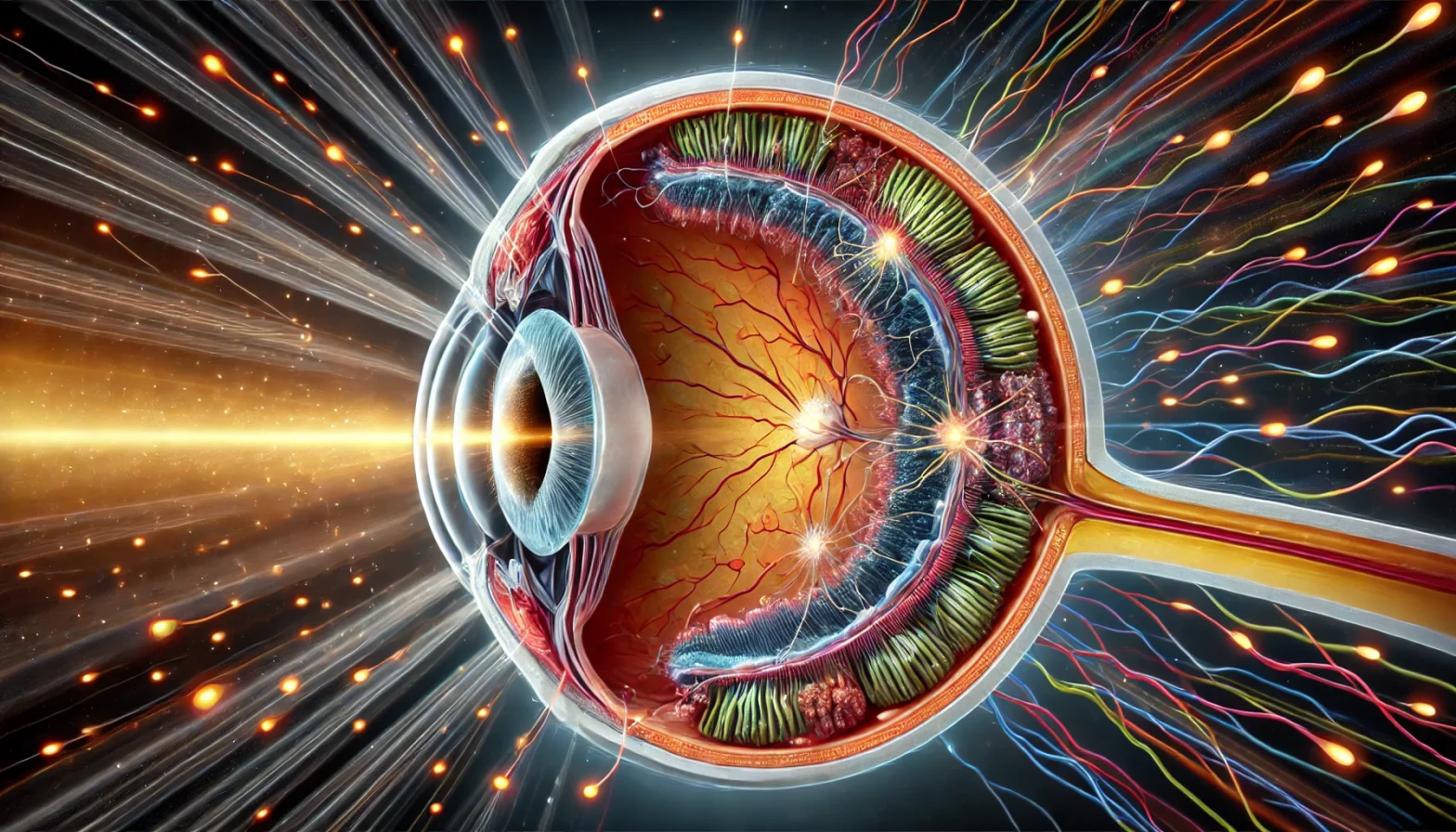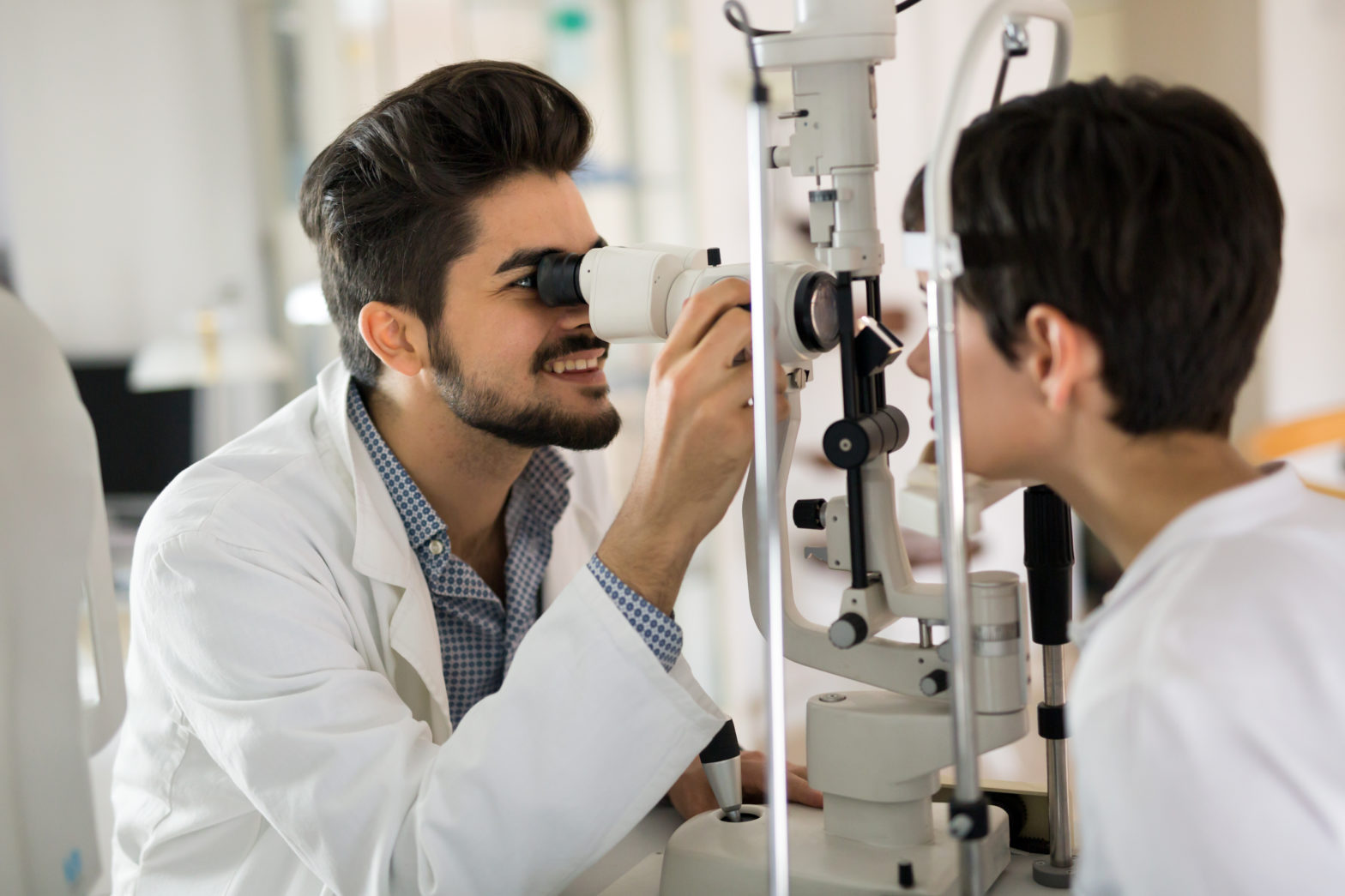The retina is the innermost layer of our eye containing several nerves that enables us to see. Light rays that travel from the object are received by the cornea and the lens and focused onto the retina. An image is produced that is sent through optic nerve to the brain and this is what allows us to see the world around us.
What is Retinal Detachment ?
Retina is crucial to see. Anything that interferes with the functioning of retina can turn us blind. One such condition is called retinal detachment (RD). RD is an eye condition wherein the back of your retina splits from the intact layers of the eyeball. Common causes of retinal detachment include extreme nearsightedness or high myopia, eye injury, vitreous gel shrinking, post cataract surgery complications etc.
Retinal Detachment Symptoms
- Patients with retinal detachment usually do not feel pain, however s/he may experience
- Flashes of bright light
- Black spots showers or floaters
- Wavy or fluctuating vision
- Loss of Contrast sensitivity
- Curtain or a shadow spreading across your field of vision
Retinal detachment requires a retinal surgery which is performed as soon as the diagnosis is made. After the retinal detachment surgery there are several do’s and don’ts that most people have to follow for a period of a few weeks. For example, if any expansible gas like c3f8 has been put into the vitreous cavity then air travel is restricted for almost a month after the surgery.
Things To Avoid With Retinal Detachment
Retinal detachment is a serious condition that requires immediate attention and careful management. Avoiding certain activities and habits can help prevent worsening of the condition before and after treatment:
-
Strenuous Physical Activities:
- Avoid heavy lifting, high-intensity exercises, and sudden movements that can put strain on the eyes.
-
Rubbing or Pressuring the Eyes:
- Refrain from touching, rubbing, or applying pressure to your eyes as this can worsen detachment.
-
Bright Screens or Excessive Screen Time:
- Limit exposure to digital screens or bright lights to prevent additional eye strain.
-
Flying or High-Altitude Activities:
- Avoid air travel or activities like mountain climbing until cleared by your doctor, as pressure changes can affect the retina.
-
Neglecting Symptoms:
- Do not ignore signs like flashes of light, floaters, or blurred vision. Seek medical attention immediately.
How Long Can Retinal Detachment Go Untreated?
- Retinal detachment is a medical emergency that should not go untreated.
-
Immediate Impact:
- Untreated detachment can lead to permanent vision loss within days to weeks, especially if the macula (central retina) is affected.
-
Delays in Treatment:
- Prolonged detachment results in irreversible damage to retinal cells, reducing the chances of successful recovery even after surgery.
-
Recommendation:
- Contact an ophthalmologist as soon as symptoms appear to avoid complications.
Vision Recovery After Retinal Detachment Surgery
Every person has a different body; hence, their response will vary to the treatment. Typically, it takes minimum three months to ensure that the retina has been reattached firmly and for the functional visual recovery.
Vision Outcome After Retinal Detachment Surgery
The severity of the retinal detachment determines the speed at which a patient’s vision reappears. Additional factors include the delay between the occurrence of retinal detachment and the surgery. The longer the retina stays in a detached condition the lower the probability of near complete visual recovery. That’s why most doctors will insist on doing the retinal detachment surgery as soon as the diagnosis is confirmed.
Besides this many a times the refractive power of the eye changes after the retinal detachment surgery due to the use of external bands and buckles which alters the length of the eye ball and silicon oil which is sometimes left inside the vitreous cavity after the retinal detachment surgery.
After the operation, vision can take three months or longer to improve.
Precautions After Retinal Detachment Surgery
- As it is apparent with almost any surgery, we must restrict ourselves from doing heavy physical activities after retinal surgery as well. This also includes your routine (vigorous) exercise regime, if any.
- It is always a good idea to ask your retina specialist and take his/her approval before resuming any activity involving muscle exertion.
- Your eye surgeon will instruct you to position your head in a certain way after surgery.
- Always keep your hands clean and avoid rubbing or touching your eye.
- Follow and adhere to the prescription of the eye drops.
- Make use of eye shield for at least one week post operation.
- Always use clean and fresh tissue to clean the eye surface. Do not reuse it.
- Please throw away previously opened eye drops.
- If you feel any degree of eye pain, keep pain relief tablets handy only after consulting your eye specialist.
- It is better to take at least 15 days off from work and other routine activities like excessive computer work etc.
Exercise After Retinal Detachment Surgery
-
Initial Recovery Phase:
- During the first 4–6 weeks, avoid all strenuous exercises and stick to light activities like walking.
-
Safe Exercises:
- After clearance from your doctor, start with low-impact exercises like yoga or stretching.
-
Avoid Risky Activities:
- Refrain from activities involving jumping, heavy lifting, or rapid head movements for several months.
-
Monitor Symptoms:
- Stop exercising immediately if you notice any discomfort, pain, or vision changes, and consult your doctor.
Factors Affecting Retinal Detachment Recovery After Surgery
Several factors influence the speed and success of recovery following retinal detachment surgery:
-
Severity of Detachment:
- Larger or longer-standing detachments take longer to heal and may result in reduced vision recovery.
-
Patient’s Health:
- Underlying conditions like diabetes or high blood pressure can slow healing.
-
Surgical Technique:
- Advanced techniques like vitrectomy or scleral buckling may result in better outcomes but require more recovery time.
-
Post-Surgical Care:
- Adherence to medication, rest, and follow-up appointments is crucial for a smooth recovery.
-
Age and Eye Condition:
- Older patients or those with pre-existing eye conditions may experience slower healing.









